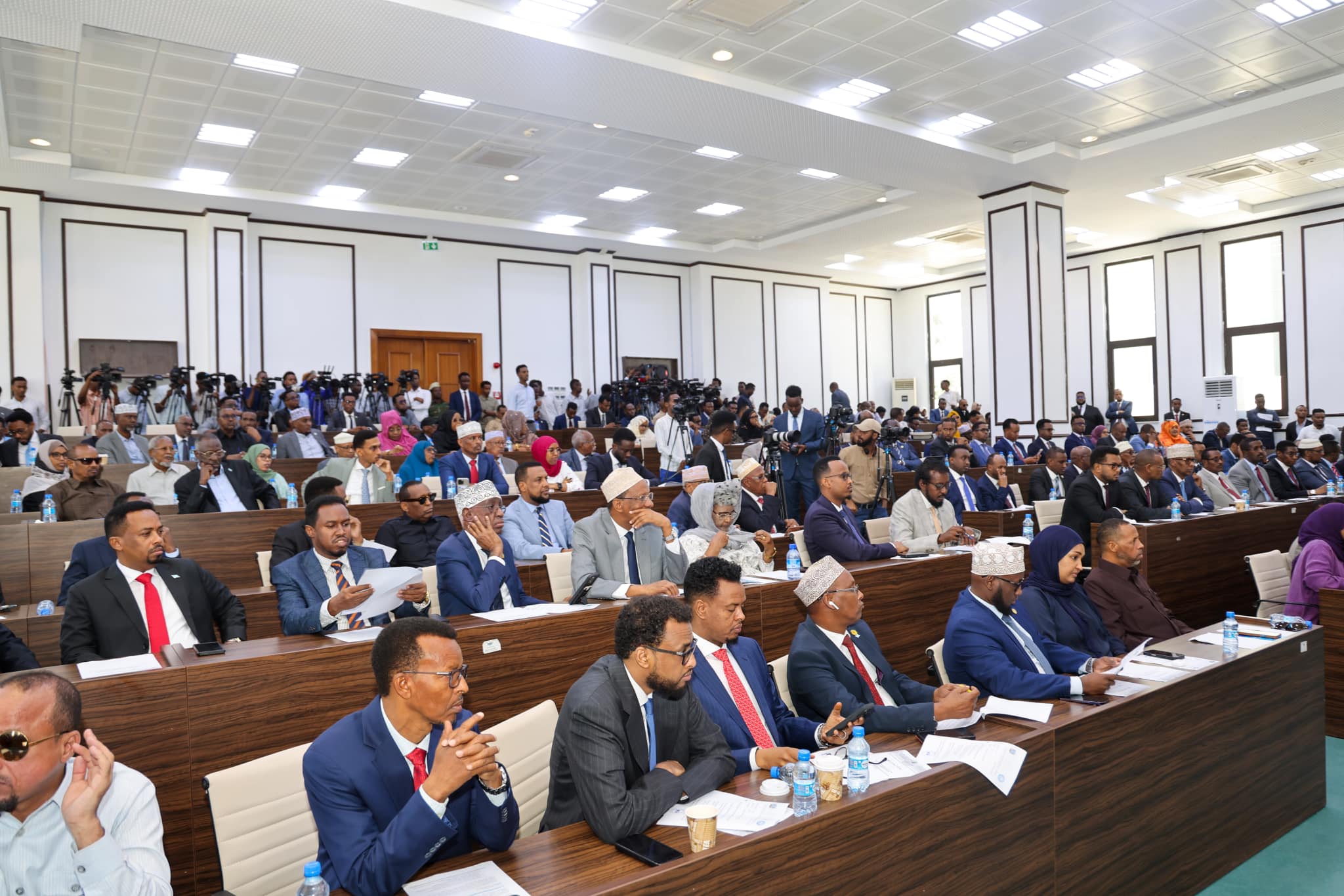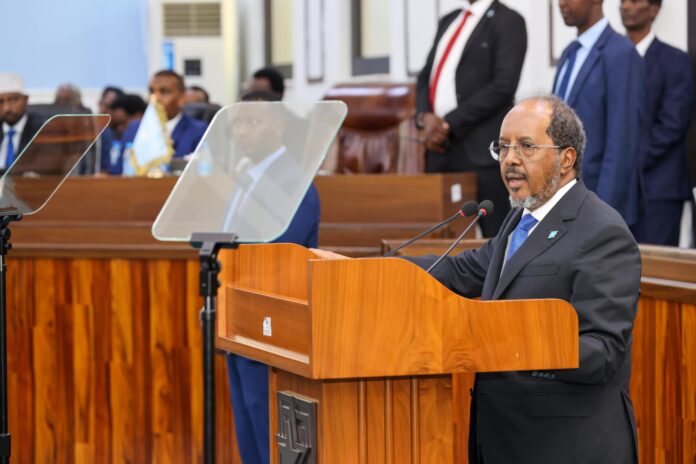MOGADISHU (Kaab TV) – The Somali Federal Parliament reconvened on Saturday after a prolonged recess and a subsequent delay caused by an impeachment motion against President Hassan Sheikh Mohamud and his Prime Minister.
The session was tense, with opposition and pro-government lawmakers exchanging heated words outside the parliamentary hall.
However, Speaker Aden Madobe did not address the reasons behind the extended postponement.
In his opening remarks, Speaker Madobe outlined three main priorities for the parliament: Continuation of the constitutional review process, Completion of pending bills from the previous parliamentary session, and Government accountability.

Notably, there was no mention of the electoral process being pushed by President Mohamud’s administration, a topic that has sparked intense debate.
During the session, Madobe praised the British parliamentary system, sharing his experience of witnessing UK lawmakers scrutinize the Prime Minister.
“I hope one day we will see such a system in our parliament,” he remarked, as cameras turned to President Mohamud, who appeared to be paying close attention.
President Pushes Ahead With Controversial Election Plan
In his speech, President Hassan Sheikh Mohamud shifted focus to his administration’s push for a one-person, one-vote election, despite widespread opposition.
“The election is a reality, and it will happen,” he declared, though he provided no timeline for implementation. However, he acknowledged that completing the constitutional review was a prerequisite for holding elections.
“The country must have a finalized and complete constitution,” he told lawmakers, indirectly linking the stalled legal framework to the electoral process.
Security Concerns and Financial Constraints
Security remains a major challenge, with Al-Shabaab militants recently seizing key towns in the Middle Shabelle region.
While President Mohamud admitted to the worsening security situation, he avoided mentioning the specific towns captured by the insurgents.
On the financial front, Mohamud revealed that despite initial government funding, the electoral commission still lacks the necessary resources to function effectively.
The commission, formed last year, has not been fully endorsed by regional states, and opposition groups refuse to recognize it.
The opposition party Himilo Qaran, led by former President Sharif Sheikh Ahmed, dismissed Mohamud’s electoral proposal, insisting that any future election must follow the previous model, which was endorsed by all stakeholders.
MP Abdirashid Hidig echoed this sentiment, stating, “On May 15, 2026, we expect to have an election process accepted by all. That means returning to the selection model used in previous elections at the airport hall.”
As political divisions deepen, Somalia’s path to the next elections remains uncertain, with growing resistance to President Mohamud’s push for a unilateral electoral process.


